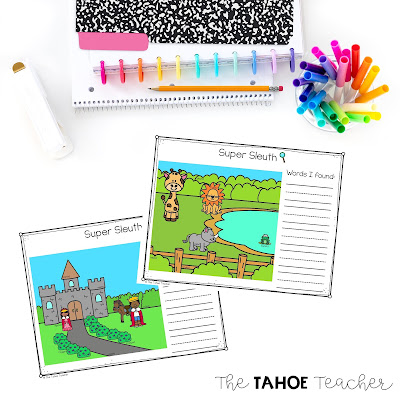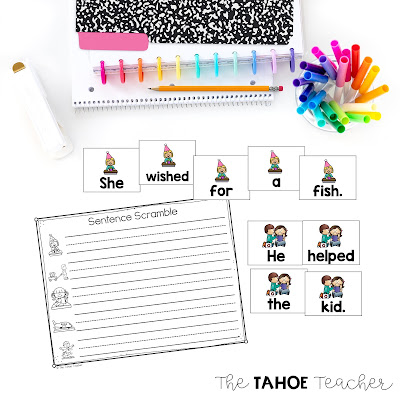Teaching ED Word Endings with Phonics Games and Interventions
Hey, y'all! This week in phonics, we're working on regular past tense endings with -ed. As I've shared before, when I started teaching, I had a lot to learn about phonics instruction and I had no idea what kinds of things the kids would say as we were brainstorming word lists. (Can you think of a word that has a /sh/ sound?...) We've all been there. It's a learning experience for everyone.
When brainstorming words with -ed endings, my students automatically went to irregular past tense words, like ran or sang. Or they suggested words like "runned" and "red." It took us some time to get into the groove of thinking about how we would say things that already happened, (red is not one of those words) and to fix some grammatical errors my littles were making (like saying "runned").
After we wrote our list, we sorted them into three categories of what -ed says: /t/, /d/, and /ed/. They loved this part and it helped them to pay attention to all the sounds they were hearing in each word.
Then, we learned when to double the last letter before adding the -ed. When a word ends with one vowel + one consonant, the consonant will be doubled. So "wrap" would become "wrapped," "tap" becomes "tapped," etc. I guess I've created an environment where puzzles and brain teasers excite them because they were ALL IN on figuring out which words needed to double the letters. It was really charming.
After our whole class lesson, when break off into reading groups. My students cycle through four rotations: teacher table where we do reading games, interventions, and read stories; read to self; computer time with the program the district provides; and phonics centers. Whatever skill we are working on that week is the center they're supposed to practice with first. Previous weeks' skills are available for review fi they have time. If I have a group that is still needing extra support, I'll work with them on it during their teacher table time.
For literacy centers, the kids will have the Bump games, read and write cards, hidden pictures, spin a sentence, and sometimes the matching/Memory cards and sentence scramble cards depending on how independent that group is. I keep the roll and read games, and sometimes the sentence scramble and matching cards with me for small groups so I can gauge how well they are doing with reading these spelling patterns. And we use the Scoot game at the end of the week as an assessment, or we use the cards for Quiz-Quiz-Trade later on as review.
My favorite thing about these centers is that they target the specific skill we are working on in phonics that week. Too often in the past we would teach the skill, then the practice they had after didn't match up with what we were learning. No more! Just like in math, when we learn a new skill, we need time to use it before it becomes automatic. These phonics centers give students practice in the exact skill we're learning. It's been a game changer.
I hope this helped with your planning for your next unit. Have a wonderful week and I'll talk to you soon.
Stay cozy,










No comments
Post a Comment